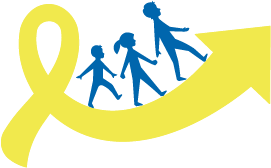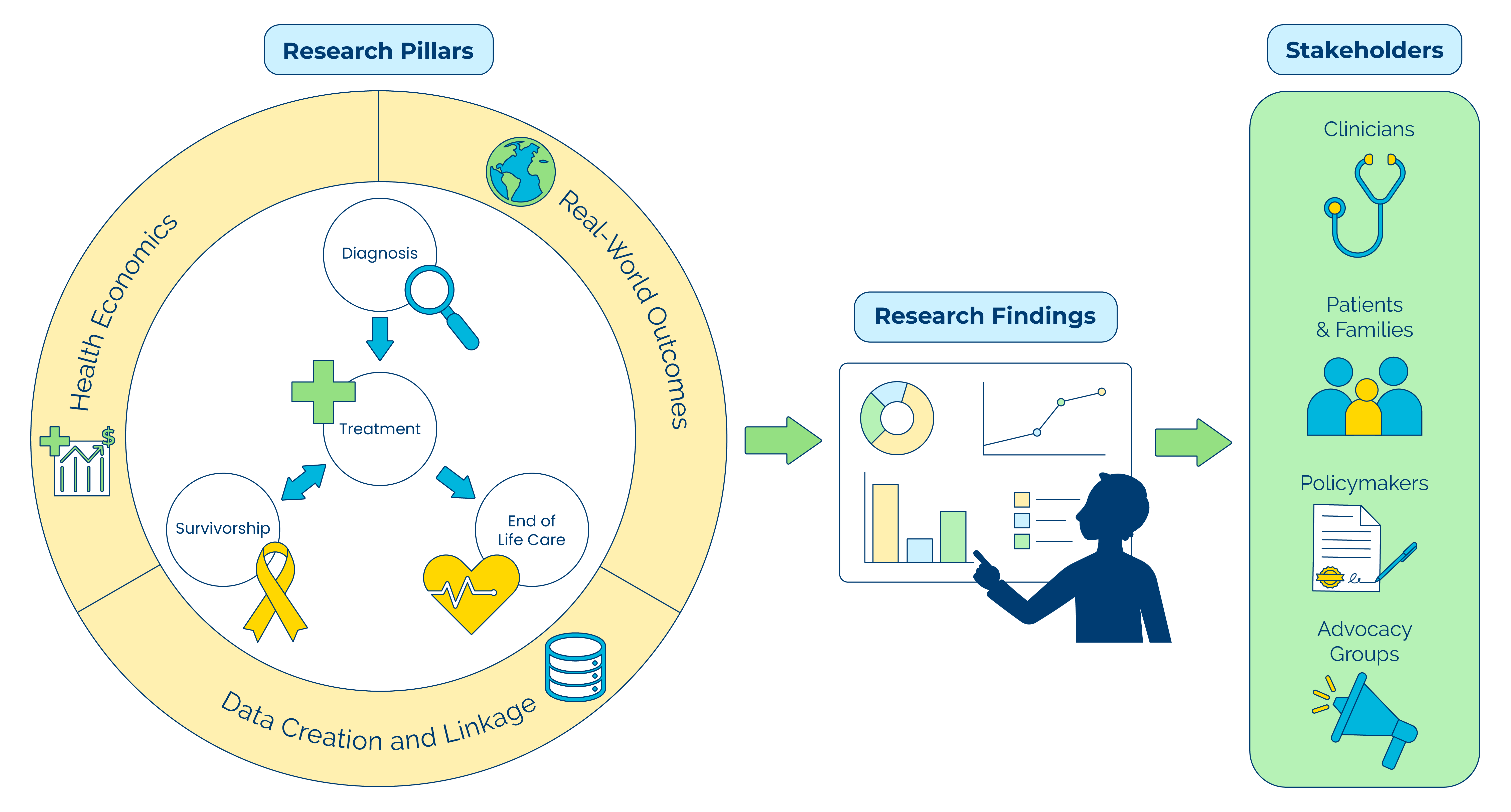The ROCCA Program
Evaluating the real-world outcomes of cancer in children and adolescents
Our mission
ROCCA’s mission is to leverage Ontario and Canada’s unique administrative data to evaluate health and socioeconomic outcomes across the paediatric and adolescent/young adult (AYA) cancer journey, from diagnosis through treatment to survivorship or palliative care.
By conducting innovative and rigorous population-level research, we aim to inform efforts that increase equitable access to high-quality and cost-effective cancer care for children and AYAs in Canada and beyond.
What we study
Our research program has three pillars:
- Real-world outcomes
- Health economics
- Data creation and linkage
We strive to communicate our findings to patients and their families, policymakers, and advocacy groups, so they can be used to improve the care provided to children and AYA with cancer and better understanding the long-term impacts of cancer.
What are real-world outcomes?
Our team uses administrative data to study real-world outcomes. Administrative data are sources of information that are routinely collected by governments or other organizations for non-statistical reasons, but have been approved for research use. For example, records of cancer diagnoses and records of health care use (e.g., hospitalizations and emergency department visits). Using this data, we generate real-world evidence that is population-based, less prone to bias, and addresses both short- and long-term outcomes after a cancer diagnosis.



